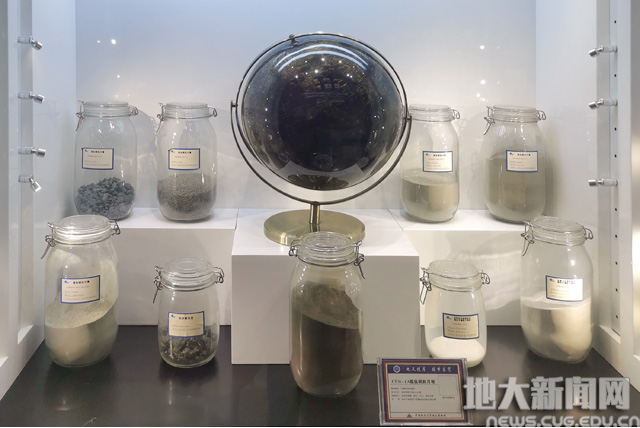The Chang’e-5 orbiter is heading home on the final leg of its mission to collect fresh lunar samples from the moon. It is the first such lunar exploration since the former USSR sent their lunar explorer onto the moon in 1976. For the accomplishment of the mission, large-scale equipment such as excavators, drills, and many in-situ resource utilization technologies must be tested in a relevant simulated operation environment on Earth beforethey are employed on the moon. However, since there are no sufficiently large quantities of actual lunar regolith, researchers must rely on lunar regolith simulant to do the tests. And now, lunar regolith simulant goes on display at the center of CUG Museum to cater the public’s increasing curiosity about lunar surface materials and space science.

Low-Ti mare lunar regolith simulant

Lunar and Martian meteorites

Martian regolith simulant, Allende meteorite, Mangui meteorite, etc
CUG Prof. XIAO Long, from the Planetary Science Institute, has participated in the Chang’e-5 mission as a member of the expert group for the flight control of the acquisition subsystem of drilling and coring.

Prof. XIAO Long is explaining the geological and geomorphological characteristics of chang’e-5 landing site
As governments as well as private companies have announced their respective space programs to explore the outer space in recent years, people around the globe have grown more interested in astronomy.
The display runs from December 7 to 22. Members of the public can make appointments to visit with the WeChat official account of Wuhan Municipal Administration of Culture and Tourism, free of charge.
(Edited and translated from the Chinese version)